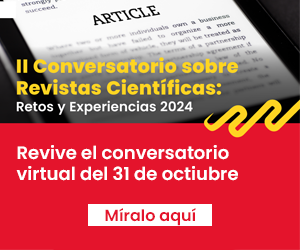Distrés peritraumático, enfermedades previas e ingesta de medicamentos en médicos en actividad presencial durante la pandemia por COVID-19 en Lima, Perú
DOI:
https://doi.org/10.20453/rnp.v87i2.5098Palabras clave:
COVID-19, salud mental, distrés peritraumático, médicos, primera líneaResumen
Objetivo: Determinar la relación y los factores conexos entre enfermedades preexistentes, ingesta de medicamentos y distrés peritraumático en médicos en actividad presencial en Lima (Perú) durante la pandemia por COVID-19. Materiales y métodos: El estudio incluyó a médicos que laboraban en primera línea de contacto con pacientes con COVID-19 y/o en áreas diferentes. Los instrumentos utilizados fueron el Índice de Distrés Peritraumático relacionado a COVID-19 (CPDI), el Cuestionario sobre Salud del Paciente (9 ítems) (PHQ-9) y la Escala para el Trastorno de Ansiedad Generalizada (7 ítems) (GAD-7). Se siguió un modelo lineal general tomando los valores del CPDI como variable dependiente para evaluar los factores relacionados con el distrés. Resultados: De un total de 288 médicos, el 54,50 % laboraba en primera línea. El CPDI muestra una relación directa con GAD-7 y PHQ-9, así como con enfermedad médica. Hubo también una relación estadísticamente significativa con la interacción entre las variables primera línea, enfermedad médica e ingesta de algún medicamento. El análisis post-hoc mostró mayor distrés en médicos que no trabajaban en primera línea, que tenían alguna enfermedad y que recibían alguna medicación, en comparación con médicos del mismo grupo laboral pero sin enfermedades ni ingesta de medicamentos. Se encontró, asimismo, mayor distrés en médicos que laboraban en primera línea, que adolecían de alguna enfermedad y que no tomaban medicación alguna. Conclusiones: Los valores de distrés ocasionado por la COVID-19 en médicos se encuentran directamente relacionados no solamente con niveles declarados de ansiedad y depresión, sino también con la presencia de alguna enfermedad. En médicos que no laboraban en primera línea, la presencia conjunta de enfermedad y tratamiento con medicación para la misma condicionó valores elevados de distrés.
Descargas
Citas
Ghahramani S, Kasraei H, Hayati R, Tabrizi R, Marzaleh MA. Health care workers’ mental health in the face of COVID-19: a systematic review and meta-analysis. Int J Psychiatry Clin Pract [Internet]. 2023; 27(2): 208-217. Disponible en: https://doi.org/10.1080/13651501.2022.2101927
Moro MF, Calamandrei G, Poli R, Di Mattei V, Perra A, Kurotschka PK, et al. The impact of the COVID-19 pandemic on the mental health of healthcare workers in Italy: analyzing the role of individual and workplace-level factors in the reopening phase after lockdown. Front Psychiatry [Internet]. 2022; 13: 867080. Disponible en: https://doi.org/10.3389/fpsyt.2022.867080
Chinvararak C, Kerdcharoen N, Pruttithavorn W, Polruamngern N, Asawaroekwisoot T, Munsukpol W, et al. Mental health among healthcare workers during COVID-19 pandemic in Thailand. PLoS One [Internet]. 2022; 17(5): e0268704. Disponible en: https://doi.org/10.1371/journal.pone.0268704
López LC, Herrera CR, Fong SB, Godoy JC. A longitudinal study on the changes in mental health of healthcare workers during the COVID-19 pandemic. Psychiatry [Internet]. 2022; 85(1): 56-71. Disponible en: https://doi.org/10.1080/00332747.2021.1940469
Scott HR, Stevelink SA, Gafoor R, Lamb D, Carr E, Bakolis I, et al. Prevalence of post-traumatic stress disorder and common mental disorders in health-care workers in England during the COVID-19 pandemic: a two-phase cross-sectional study. Lancet Psychiatry [Internet]. 2023; 10(1): 40-49. Disponible en: https://doi.org/10.1016/S2215-0366(22)00375-3
Olivares-Tirado P, Zanga-Pizarro R. Impact of COVID-19 pandemic outbreak on mental health of the hospital front-line healthcare workers in Chile: a difference-in-differences approach. J Public Health (Bangkok) [Internet]. 2023; 45(1): e57-e64. Disponible en: https://dx.doi.org/10.1093/pubmed/fdac008
Li Z, He J, Wang Y, Bai M, Zhang Y, Chen H, et al. A cross-sectional study on the mental health of patients with COVID-19 1 year after discharge in Huanggang, China. Eur Arch Psychiatry Clin Neurosci [Internet]. 2023; 273(2): 301-310. Disponible en: https://doi.org/10.1007/s00406-022-01484-8
Zheng Y, Tang PK, Lin G, Liu J, Hu H, Wu AM, et al. Burnout among healthcare providers: its prevalence and association with anxiety and depression during the COVID-19 pandemic in Macao, China. PLoS One [Internet]. 2023; 18(3): e0283239. Disponible en: https://doi.org/10.1371/journal.pone.0283239
Li Y, Fan R, Lu Y, Li H, Liu X, Kong G, et al. Prevalence of psychological symptoms and associated risk factors among nurses in 30 provinces during the COVID-19 pandemic in China. Lancet Reg Health West Pac [Internet]. 2023; 30: 100618. Disponible en: https://doi.org/10.1016/j.lanwpc.2022.100618
Vance MC, Kovachy B, Dong M, Bui E. Peritraumatic distress: a review and synthesis of 15 years of research. J Clin Psychol [Internet]. 2018; 74(9): 1457-1484. Disponible en: https://doi.org/10.1002/jclp.22612
Al-Rahimi JS, Nass NM, Hassoubah SA, Wazqar DY, Alamoudi SA. Levels and predictors of fear and health anxiety during the current outbreak of COVID-19 in immunocompromised and chronic disease patients in Saudi Arabia: a cross-sectional correlational study. PLoS One [Internet]. 2021; 16(4): e0250554. Disponible en: https://doi.org/10.1371/journal.pone.0250554
Qi X, Wang J, Liu J, Amporfro DA, Wang K, Liu H, et al. Factors associated with peritraumatic stress symptoms among the frontline healthcare workers during the outbreak of COVID-19 in China. BMJ Open [Internet]. 2022; 12(1): e047753. Disponible en: https://doi.org/10.1136/bmjopen-2020-047753
Ghai B, Sharma R, Saini L, Yadav J, Kumar K, Sharma A, et al. Mental health of health care workers during the hour of crisis - A study from tertiary care hospital in North India. Ind Psychiatry J [Internet]. 2023; 32(1): 172-178. Disponible en: https://doi.org/10.4103/ipj.ipj_125_21
Kafle K, Shrestha DB, Baniya A, Lamichhane S, Shahi M, Gurung B, et al. Psychological distress among health service providers during COVID-19 pandemic in Nepal. PLoS One [Internet]. 2021; 16(2): e0246784. Disponible en: https://doi.org/10.1371/journal.pone.0246784
Monterrosa-Castro Á, Dávila-Ruiz R, Mejía-Mantilla A, Contreras-Saldarriaga J, Mercado-Lara M, Florez-Monterrosa C. Estrés laboral, ansiedad y miedo al COVID-19 en médicos generales colombianos. MedUNAB [Internet]. 2020; 23(2): 195-213. Disponible en: https://doi.org/10.29375/01237047.3890
Al-Hanawi MK, Mwale ML, Alshareef N, Qattan AM, Angawi K, Almubark R, et al. Psychological distress amongst health workers and the general public during the COVID-19 pandemic in Saudi Arabia. Risk Manag Healthc Policy [Internet]. 2020; 13: 733-742. Disponible en: https://doi.org/10.2147%2FRMHP.S264037
Chew NW, Lee GK, Tan BY, Jing M, Goh Y, Ngiam NJ, et al. A multinational, multicentre study on the psychological outcomes and associated physical symptoms amongst healthcare workers during COVID-19 outbreak. Brain Behav Immun [Internet]. 2020; 88: 559-565. Disponible en: https://doi.org/10.1016/j.bbi.2020.04.049
Tasnim R, Sujan MS, Islam MS, Ferdous MZ, Hasan MM, Koly KN, et al. Depression and anxiety among individuals with medical conditions during the COVID-19 pandemic: findings from a nationwide survey in Bangladesh. Acta Psychol (Amst) [Internet]. 2021; 220: 103426. Disponible en: https://doi.org/10.1016%2Fj.actpsy.2021.103426
Tan BY, Chew NW, Lee GK, Jing M, Goh Y, Yeo LL, et al. Psychological impact of the COVID-19 pandemic on health care workers in Singapore. Ann Intern Med [Internet]. 2020; M20-1083: 317-320. Disponible en: https://doi.org/10.7326/M20-1083
Özdin S, Bayrak Ş. Levels and predictors of anxiety, depression and health anxiety during COVID-19 pandemic in Turkish society: the importance of gender. Int J Soc Psychiatry [Internet]. 2020; 66(5): 504-511. Disponible en: https://doi.org/10.1177/0020764020927051
United Nations. Policy Brief: COVID-19 and the Need for Action on Mental Health [Internet]. UN; 2020. Disponible en: https://unsdg.un.org/sites/default/files/2020-05/UN-Policy-Brief-COVID-19-and-mental-health.pdf
Qiu J, Shen B, Zhao M, Wang Z, Xie B, Xu Y. A nationwide survey of psychological distress among Chinese people in the COVID-19 epidemic: implications and policy recommendations. Gen Psychiatr [Internet]. 2020; 33(2): e100213. Disponible en: https://doi.org/10.1136/gpsych-2020-100213
Pedraz-Petrozzi B, Arévalo-Flores M, Krüger-Malpartida H, Anculle-Arauco V. Validación por expertos del Índice de Distrés Peri-traumático relacionado con la enfermedad por coronavirus 2019 para su uso en el Perú. Rev Neuropsiquiatr [Internet]. 2021; 83(4): 228-235. Disponible en: https://doi.org/10.20453/rnp.v83i4.3888
Calderón M, Gálvez-Buccollini JA, Cueva G, Ordoñez C, Bromley C, Fiestas F. Validación de la versión peruana del PHQ-9 para el diagnóstico de depresión. Rev Peru Med Exp Salud Pública [Internet]. 2012; 29(4): 578-579. Disponible en: http://www.scielo.org.pe/scielo.php?script=sci_arttext&pid=S1726-46342012000400027
Villarreal-Zegarra D, Copez-Lonzoy A, Bernabé-Ortiz A, Melendez-Torres GJ, Bazo-Alvarez JC. Valid group comparisons can be made with the Patient Health Questionnaire (PHQ-9): a measurement invariance study across groups by demographic characteristics. PLoS One [Internet]. 2019; 14(9): e0221717. Disponible en: https://doi.org/10.1371/journal.pone.0221717
Zhong QY, Gelaye B, Zaslavsky AM, Fann JR, Rondon MB, Sánchez SE, et al. Diagnostic validity of the Generalized Anxiety Disorder-7 (GAD-7) among pregnant women. PLoS One [Internet]. 2015; 10(4): e0125096. Disponible en: https://doi.org/10.1371/journal.pone.0125096
Gallucci M. Generalized and generalized mixed models for Jamovi [Internet]. Jamovi; 2017.
Morris PE, Fritz CO. Effect sizes in memory research. Memory [Internet]. 2013; 21(7): 832-842. Disponible en: https://doi.org/10.1080/09658211.2013.763984
University of Cambridge. Rules of thumb on magnitudes of effect sizes [Internet]. UC; 2011, 30 de noviembre. Disponible en: https://imaging.mrc-cbu.cam.ac.uk/statswiki/FAQ/effectSize
Fattori A, Cantù F, Comotti A, Tombola V, Colombo E, Nava C, et al. Hospital workers mental health during the COVID-19 pandemic: methods of data collection and characteristics of study sample in a university hospital in Milan (Italy). BMC Med Res Methodol [Internet]. 2021; 21(1): 163. Disponible en: https://doi.org/10.1186/s12874-021-01355-1
Horesh D, Kapel R, Hasson-Ohayon I. Risk factors for psychological distress during the COVID-19 pandemic in Israel: loneliness, age, gender, and health status play an important role. Br J Health Psychol [Internet]. 2020; 25(4): 925-933. Disponible en: https://doi.org/10.1111/bjhp.12455
Salazar de Pablo G, Vaquerizo-Serrano J, Catalan A, Arango C, Moreno C, Ferre F, et al. Impact of coronavirus syndromes on physical and mental health of health care workers: systematic review and meta-analysis. J Affect Disord [Internet]. 2020; 275: 48-57. Disponible en: https://doi.org/10.1016%2Fj.jad.2020.06.022
Buselli R, Corsi M, Baldanzi S, Chiumiento M, Del Lupo E, Dell’Oste V, et al. Professional quality of life and mental health outcomes among health care workers exposed to Sars-Cov-2 (Covid-19). Int J Environ Res Public Health [Internet]. 2020; 17(17): 6180. Disponible en: https://doi.org/10.3390/ijerph17176180
Rossi R, Socci V, Pacitti F, Di Lorenzo G, Di Marco A, Siracusano A, et al. Mental health outcomes among frontline and second-line health care workers during the coronavirus disease 2019 (COVID-19) pandemic in Italy. JAMA Netw Open [Internet]. 2020; 3(5): e2010185. Disponible en: https://doi.org/10.1001/jamanetworkopen.2020.10185
De Sio S, Buomprisco G, La Torre G, Lapteva E, Perri R, Greco E, et al. The impact of COVID-19 on doctors’ well-being: results of a web survey during the lockdown in Italy. Eur Rev Med Pharmacol Sci [Internet]. 2020; 24(14): 7869-7879. Disponible en: https://doi.org/10.26355/eurrev_202007_22292
Lai J, Ma S, Wang Y, Cai Z, Hu J, Wei N, et al. Factors associated with mental health outcomes among health care workers exposed to coronavirus disease 2019. JAMA Netw Open [Internet]. 2020; 3(3): e203976. Disponible en: https://doi.org/10.1001%2Fjamanetworkopen.2020.3976
Lozano-Vargas A. Impacto de la epidemia del coronavirus (COVID-19) en la salud mental del personal de salud y en la población general de China. Rev Neuropsiquiatr [Internet]. 2020; 83(1): 51-56. Disponible en: http://dx.doi.org/10.20453/rnp.v83i1.3687
Li ZC, Wang K, Zhu XY, Du JL. [The mediating role of mental capital in understanding social support and job satisfaction]. Zhonghua Lao Dong Wei Sheng Zhi Ye Bing Za Zhi [Internet]. 2018; 36(8): 594-597. Disponible en: https://doi.org/10.3760/cma.j.issn.1001-9391.2018.08.007
Descargas
Publicado
Cómo citar
Número
Sección
Licencia
Derechos de autor 2024 Juan Diego Mendoza Saldaña, Martín Arévalo Flores, Hever Krüger Malpartida, Victor Anculle-Arauco, Mauricio Dancuart-Mendoza, Yadhira Pérez-Quiñones, Janeth Torres Mayta, Bruno Pedraz-Petrozzi

Esta obra está bajo una licencia internacional Creative Commons Atribución-NoComercial 4.0.
















